Novel Space Power System Design, Integration and Control Technologies
Scope
With the development of the new generation of space vehicles, the power demand of spacecraft is steadily increasing, and almost every seven years, the power demand will double. Space power supplies are facing the demand of high voltage, high power, high efficiency, light weight, intelligence and long life. At the same time, how to achieve high reliability and autonomy is also the future development direction. High voltage & power spacecraft power supply technology, ultra-high specific power battery related technology is essential to support future space missions. This special issue focuses on the field of space power supply systems and rechargeable batteries, including photovoltaic cell, power conversion circuits and battery related applications.
We invite the submission of original research, review, perspective articles and potential topics include, but are not limited to the following research areas:
Space power supply system:
- Flexible photovoltaic cell materials and design
- Power conversion circuit and device
- System durability management
Rechargeable battery:
- Battery manufacturing/design/production
- Battery materials, and system design
- Cells selection,and battery pack optimization configuration
- Battery modeling and digital simulation, Parameter identification, diagnostics and prognostics
- Battery thermal management
- Battery charging, balancing, energy management and optimal control
- Battery failure mechanism, life extension measures and reliability
- Thermal runaway evolution process, protection methods and anti-spread measures for batteries
- Battery faults, lifetime and safety management
- Intelligent sensor methods, big data, machine learning and fusion methods
- Rapid state estimation and life prediction for batteries
Guest Editors
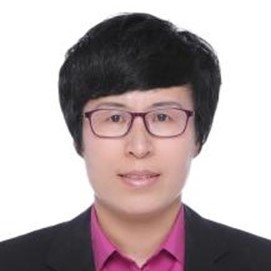 Bingxiang Sun received her Master’s Degree and Doctor’s Degree from WuHan University and Institute of Electrical Engineering Chinese Academy of Sciences in China, respectively. She is a tenured professor in Beijing Jiaotong University, and also the chief expert on energy storage system (SSE) of Key Laboratory of Transport Equipment Multi-Source Power System, Ministry of Education of China. She served as the member in both the Electric Vehicle Committee and the Electric Vehicle Charging/Swapping System and Testing Committee of China Electrotechnical Society, as well as a managing director in Power Battery Technology subcommittee and Electric Vehicle & Energy Transportation System Integration Technology subcommittee, IEEE PES. She mainly focuses on the pack application research for rechargeable battery in transportation, power grid and special fields. With 17 years of industry experience, she has presided over 8 national projects, mastered a number of key technologies, and attaches great importance to the transformation of achievements and civil-military integration. She was awarded the first prize of China Machinery Industry Science and Technology Award (2019) and the second prize of Beijing Science and Technology Progress Award (2022). She served for energies as Guest Editor for a special issue (Modeling, Diagnosis, and Protection for Li-ion Battery Energy Storage System) (2022). Her research interests include battery modeling and virtual simulation, state estimation (SOC/SOE/SOP/ SOH), low temperature heating and fast charging techniques, degradation prognosis and life assessment, failure detection and warning, optimization management and control.
Bingxiang Sun received her Master’s Degree and Doctor’s Degree from WuHan University and Institute of Electrical Engineering Chinese Academy of Sciences in China, respectively. She is a tenured professor in Beijing Jiaotong University, and also the chief expert on energy storage system (SSE) of Key Laboratory of Transport Equipment Multi-Source Power System, Ministry of Education of China. She served as the member in both the Electric Vehicle Committee and the Electric Vehicle Charging/Swapping System and Testing Committee of China Electrotechnical Society, as well as a managing director in Power Battery Technology subcommittee and Electric Vehicle & Energy Transportation System Integration Technology subcommittee, IEEE PES. She mainly focuses on the pack application research for rechargeable battery in transportation, power grid and special fields. With 17 years of industry experience, she has presided over 8 national projects, mastered a number of key technologies, and attaches great importance to the transformation of achievements and civil-military integration. She was awarded the first prize of China Machinery Industry Science and Technology Award (2019) and the second prize of Beijing Science and Technology Progress Award (2022). She served for energies as Guest Editor for a special issue (Modeling, Diagnosis, and Protection for Li-ion Battery Energy Storage System) (2022). Her research interests include battery modeling and virtual simulation, state estimation (SOC/SOE/SOP/ SOH), low temperature heating and fast charging techniques, degradation prognosis and life assessment, failure detection and warning, optimization management and control.
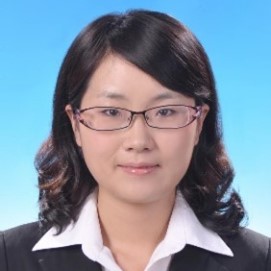 Liying Zhu received her Doctor’s Degree from Beihang University. Now She is a senior engineer in Beijing Institute of Spacecraft System Engineering. She currently works as the chief designer of some satellite power supply and distribution system. She has been engaged in the design and research of spacecraft power supply and distribution system for a long time, and has made important achievements in this field. She was awarded the Third Class of The Military Scientific and Technological Progress Award, Second Class of Science and Technology Progress of China Aerospace Science and Technology Corporation (CASC), the Top Young Talent of CASC and the Outstanding Young Talent of China Academy of Space Technology (CAST). She was supported by Beijing Nova Program. She has presided over or participated in more than ten scientific research programs such as The National Natural Science Foundation of China, the civil aerospace program of the State Administration of Science, the program of Science and Technology Commission of the Military Commission. She has been authorized or accepted more than 30 national invention patents. She has published more than 20 papers as the first author and corresponding author, including 12 SCI and EI indexed papers; 1 monograph. At present, she is researching on spacecraft power supply system with wide voltage and wide power range out.
Liying Zhu received her Doctor’s Degree from Beihang University. Now She is a senior engineer in Beijing Institute of Spacecraft System Engineering. She currently works as the chief designer of some satellite power supply and distribution system. She has been engaged in the design and research of spacecraft power supply and distribution system for a long time, and has made important achievements in this field. She was awarded the Third Class of The Military Scientific and Technological Progress Award, Second Class of Science and Technology Progress of China Aerospace Science and Technology Corporation (CASC), the Top Young Talent of CASC and the Outstanding Young Talent of China Academy of Space Technology (CAST). She was supported by Beijing Nova Program. She has presided over or participated in more than ten scientific research programs such as The National Natural Science Foundation of China, the civil aerospace program of the State Administration of Science, the program of Science and Technology Commission of the Military Commission. She has been authorized or accepted more than 30 national invention patents. She has published more than 20 papers as the first author and corresponding author, including 12 SCI and EI indexed papers; 1 monograph. At present, she is researching on spacecraft power supply system with wide voltage and wide power range out.
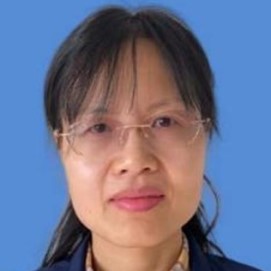 Huijuan Li received her Master’s Degree from Harbin Engineering University. Now She is a senior engineer in Tianjin Institute of Power Sources. She currently works as the vice director of space battery department. Since 2004, she has been engaged in the design and research of Energy Storage, and has near 20 years’ experience in this field. She was awarded First Class of Science and Technology Progress of CETC Award, the Second Class of The Military Scientific and Technological Progress Award, Tianjin city 51 work medal winner. She has been involved in more than 50 Ni-H2 and Li-ion satellite battery projects. Since 2009 her focus has been to promote Li-ion technology for satellites and launchers, and make these technologies mature for space. At present, she is researching on space Li-ion battery with super-high Power.
Huijuan Li received her Master’s Degree from Harbin Engineering University. Now She is a senior engineer in Tianjin Institute of Power Sources. She currently works as the vice director of space battery department. Since 2004, she has been engaged in the design and research of Energy Storage, and has near 20 years’ experience in this field. She was awarded First Class of Science and Technology Progress of CETC Award, the Second Class of The Military Scientific and Technological Progress Award, Tianjin city 51 work medal winner. She has been involved in more than 50 Ni-H2 and Li-ion satellite battery projects. Since 2009 her focus has been to promote Li-ion technology for satellites and launchers, and make these technologies mature for space. At present, she is researching on space Li-ion battery with super-high Power.
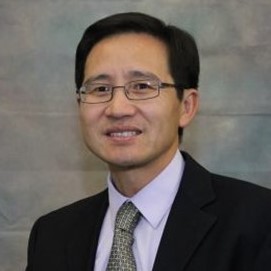 David Wenzhong Gao (S’00–M’02–SM’03–F’21) received his M.S. and Ph.D. degrees in electrical and computer engineering, specializing in electric power engineering, from Georgia Institute of Technology, Atlanta, USA, in 1999 and 2002, respectively. He is an IEEE Fellow, the Editor-in-Chief for IEEE Power and Energy Society (PES) e-News, and the Secretary for the PES Power Engineering Education Committee (PEEC). He is a Full Professor and Chair of Electrical and Computer Engineering Department, University of Denver, Colorado, USA. His current teaching and research interests include renewable energy and distributed generation, energy storage systems, microgrid, smart grid, systems engineering, power system protection, power electronics applications in power systems, power system modeling and simulation, and hybrid electric propulsion systems. He is an Associate Editor for IEEE Journal of Emerging and Selected Topics in Power Electronics and for Journal of Modern Power Systems and Clean Energy. He was an editor of IEEE Transactions on Sustainable Energy. He was the General Chair for the 48th North American Power Symposium (NAPS 2016) and the IEEE Symposium on Power Electronics and Machines in Wind Applications (PEMWA 2012).
David Wenzhong Gao (S’00–M’02–SM’03–F’21) received his M.S. and Ph.D. degrees in electrical and computer engineering, specializing in electric power engineering, from Georgia Institute of Technology, Atlanta, USA, in 1999 and 2002, respectively. He is an IEEE Fellow, the Editor-in-Chief for IEEE Power and Energy Society (PES) e-News, and the Secretary for the PES Power Engineering Education Committee (PEEC). He is a Full Professor and Chair of Electrical and Computer Engineering Department, University of Denver, Colorado, USA. His current teaching and research interests include renewable energy and distributed generation, energy storage systems, microgrid, smart grid, systems engineering, power system protection, power electronics applications in power systems, power system modeling and simulation, and hybrid electric propulsion systems. He is an Associate Editor for IEEE Journal of Emerging and Selected Topics in Power Electronics and for Journal of Modern Power Systems and Clean Energy. He was an editor of IEEE Transactions on Sustainable Energy. He was the General Chair for the 48th North American Power Symposium (NAPS 2016) and the IEEE Symposium on Power Electronics and Machines in Wind Applications (PEMWA 2012).
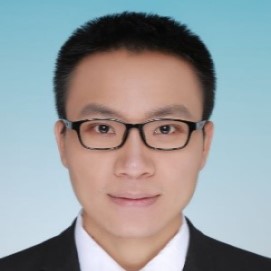 Haijun Ruan received the B.S. and Ph.D. degrees in Electrical Engineering from Beijing Jiaotong University, Beijing, China, in 2014, and 2019, respectively. He was a Visiting Student Researcher with Purdue University, West Lafayette, USA, in 2018. He is currently a Research Associate with the Dyson School of Design Engineering, Imperial College London, UK. He sits on the editorial board of the Journal of Power and Energy and the topical advisory panel of the World Electric Vehicle Journal. He acted as the guest editor for several journals, such as Frontiers in Energy Research, Energies, World Electric Vehicle Journal. He was a recipient of the National Scholarship and Zhixing scholarship, China. His research interests include modeling, low-temperature heating, charging, diagnostics and lifetime control for lithium-ion batteries in electric vehicles and energy storage systems, with ~30 papers published.
Haijun Ruan received the B.S. and Ph.D. degrees in Electrical Engineering from Beijing Jiaotong University, Beijing, China, in 2014, and 2019, respectively. He was a Visiting Student Researcher with Purdue University, West Lafayette, USA, in 2018. He is currently a Research Associate with the Dyson School of Design Engineering, Imperial College London, UK. He sits on the editorial board of the Journal of Power and Energy and the topical advisory panel of the World Electric Vehicle Journal. He acted as the guest editor for several journals, such as Frontiers in Energy Research, Energies, World Electric Vehicle Journal. He was a recipient of the National Scholarship and Zhixing scholarship, China. His research interests include modeling, low-temperature heating, charging, diagnostics and lifetime control for lithium-ion batteries in electric vehicles and energy storage systems, with ~30 papers published.
Submission Instructions
Please indicate in your cover letter that your submission is intended for inclusion in the special issue.
Submission Deadline: June 30, 2023
Table of Contents
Articles in this special issue will appear here as they are published.
